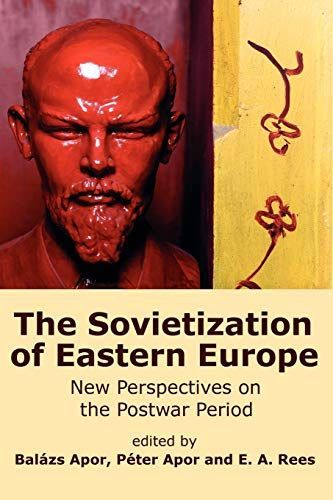
The Sovietization of Eastern Europe New Perspectives on the Postwar Period
This essay anthology offers enlightening perspectives on how East-Central Europe was transformed into the “other” Europe during the Cold War era. When the Second World War ended, a new conflict arose between world powers jockeying for supremacy. The Soviet Union pursued a policy of exporting its system of government in a process known as sovietization. But there were also governments that sought to adopt a Soviet way of life on their own accord. Dictated by ideological imperatives, both styles of sovietization employed socialist strategies of state and nation building. This volume not only examines the imposition of new forms of government, but also the socialist response to modernity as reflected in approaches to new technology and management, consumption and leisure patterns, religious and educational policy, political rituals and attitudes to the past. The essays explore the diversity and the tensions within the sovietization process in the countries of the region. “This collection is a bold and timely attempt at shedding light on a rather insufficiently researched topic . . . the diverse approaches-ranging from socio-cultural and economic history to psycho-history.” —Dr. Dragos Petrescu, University of Bucharest.